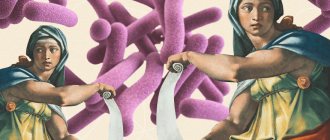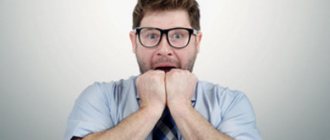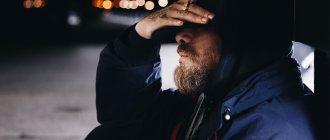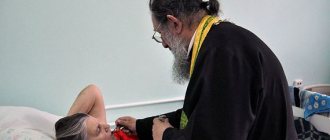Larisa Rakitina (St. Petersburg) - for 13 years - a hospital surgeon, then a clinic surgeon, now an expert doctor for an insurance company
Cancerophobia is a type of nosophobia, the fear of getting cancer. (Explanatory Dictionary of Psychiatric Terms)
According to the World Health Organization, in developed countries, the first place among the causes of death is occupied by diseases of the cardiovascular system. Malignant neoplasms are in third place on this list, accounting for 17% of overall mortality. That is, the average person has a much higher chance of dying from a myocardial infarction or stroke than from cancer or sarcoma. If all types of malignant tumors disappear, the average life expectancy will increase by only a year.
However, the fear that people have of coronary heart disease is not comparable to the fear they have of getting cancer. Among all phobias associated with diseases, cancerophobia is the undisputed leader. Any practicing doctor in his work has repeatedly encountered patients suffering from this disorder to one degree or another. Why is it so common? How to treat cancerophobia, and how difficult is it to get rid of it?
Etiology
The current understanding of malignant tumors in society looks something like this:
- Cancer is always death.
- Cancer appears out of nowhere, it is impossible to prevent it, the fight against it is futile.
- The treatment offered by modern medicine - surgical methods, chemotherapy, radiation therapy - is always very difficult to tolerate, accompanied by unpleasant side effects and rarely leads to recovery.
- All other diseases are curable. At least they do not inevitably lead to death.
Scientific information about the achievements of modern oncology is inaccessible to the population, and even uninteresting. But on the shelves of bookstores and on the Internet, at the disposal of those interested, there are a lot of opuses on this issue. Their authors know why cancer occurs and how to treat it, thereby hinting that doctors are powerless here and cannot do anything. There is a lot of information available to patients about cancer, but little of it corresponds to current scientific understanding. As a result, people do not know basic things about cancer, and the irrationality of fear has become so widespread that a cancer patient is perceived by others almost as a leper. I personally have repeatedly encountered the misconception that cancer is contagious.
The ubiquitous advertising of “unique” preparations made from various cartilages and roots, which are supposedly capable of curing both cancer and other diseases, also contributes to the spread of cancerophobia. Its recipients subconsciously form the idea that traditional medicine is not able to cope with cancer. It is also widely believed that in fact there is a universal cure for cancer, but doctors and pharmacists, fearing a decrease in their income, hide it. The accepted approach to informing patients - hiding the diagnosis until the last minute and maintaining their hope for recovery - also contributes to worsening the atmosphere of cancerophobia in society. Thanks to him, everyone knows about thousands of deaths, but at the same time they do not know about millions of cures.
By the way, in 2005, WHO recognized that silence about cancer is harmful, and fears that medical education of the population can lead to the development of cancerophobia are unfounded.
The current state of oncology is such that it can help a small number of lucky people whose tumor was detected at an early stage. Alas, cancer often manifests itself when the game is already obviously lost, and it is impossible to cure the sick person. Therefore, the main problem of modern oncology is the timely diagnosis of tumor diseases.
How can you cope with cancerophobia?
There are self-help methods. These primarily include regular physical activity, reducing alcohol consumption and quitting smoking. This helps reduce general anxiety.
How exercise improves microbiota
Regular physical activity and quitting alcohol and smoking help cope with carcinophobia.
Experts also recommend keeping a diary to track thoughts and find a rational explanation for symptoms and fears. For example, you can draw a two-column table in your notebook. In the first, write down what exactly led to health anxiety and what thoughts arose during this situation. In the second - a rational version of the event.
For example, I had a headache, and then there was a fear that it might be brain cancer. This thought goes into the first column. In the second, you need to write down that the likelihood of developing this type of cancer is very low, so in most cases, a headache is not a sign of cancer.
If you realize that anxiety does not leave you, you should consult a psychotherapist. The cognitive-behavioral approach has worked well for the treatment of anxiety, so it is better to choose a specialist who works in it. But sometimes even psychotherapy cannot completely eliminate anxiety, although it significantly reduces its manifestations and teaches one to independently analyze behavior so as not to bring oneself into panic states.
Being able to timely assess and correct a psychological state is important for making informed and informed decisions regarding health.
Pathogenesis
The fear of death is present in the life of any person as a manifestation of the instinct of self-preservation. Everyone sooner or later thinks about death and its probable causes. Of course, the possibility of getting cancer does not make anyone happy, but still, cancerophobia as a disorder does not develop in everyone, but only in individuals with certain psychological characteristics. Natalya Ermakova in her article “In the grip of cancerophobia”* describes several types of people at risk of developing this type of fear.
- The person feels unwell, and numerous examinations do not reveal any diseases that could explain his poor health. There are indeed many cases of cancer, the media constantly report that one or another famous person (or an ordinary person) died from this disease, and everyone is always surrounded by cancer patients. Therefore, a person develops and gradually strengthens the idea that he has cancer.
- Those who have a family history of cancer are also susceptible to cancerophobia. Their risk of developing cancer is indeed higher than that of everyone else, but the likelihood of developing the disease is by no means one hundred percent.
- Another option is a personal history of cancer. The treatment was once successfully carried out, but the person continues to live with the thought that something was missed, abandoned, or not completed.
To this list I would also add the fears of doctors, whose cancer phobia illustrates the truth “Many knowledge - many sorrows.”
According to my observations, people aged 30-40 years who have not achieved great success in professional and family life are more often susceptible to cancerophobia. Cancerophobes are characterized by a high level of anxiety, usually in combination with hidden depression. The latter does not manifest itself as a clear decrease in mood; its symptoms look like somatic problems - various dysfunctions and vague pain. Since such symptoms cannot be treated with traditional means, patients begin to abuse analgesics, which do not solve the problem of chronic pain, but cause addiction. The symptoms that persist, despite all the tricks, ultimately form in the patient the idea that he has a serious incurable disease.
Those suffering from chronic pain syndrome due to degenerative and chronic diseases, the consequences of trauma, also often experience depressive disorders, and may develop a pathological fear of cancer.
Many people suffering from cancerophobia are aware of their disorder, but cannot cope with it. Very often they need professional psychological and even psychiatric help.
In addition to anxiety, cancerophobes have one more common feature: they are all suggestible and leader-dependent, therefore they often unconditionally believe various charlatan gurus and are consumers of dietary supplements advertised as means of preventing and treating cancer, and frankly dangerous drugs like vituride - a mixture of sublimate with grape wine.
According to the results of a study by the RBC agency. research, the volume of the Russian market of dietary supplements in 2011 was about $1.5-2.3 billion. And if the love for dietary supplements mainly harms the wallet and does not have a significant impact on health, then the passion for urine therapy or ingesting hydrogen peroxide clearly benefits the body doesn't bring. Recovery using such methods, as a rule, does not eliminate cancerophobia. On the contrary, people become dependent on alternative medicine and real health problems that arise are treated using their favorite methods with predictable results.
Clinic
The symptoms of cancerophobia are extremely varied. It can look like a reactive state (the easiest option), persistent neurosis and even psychosis with hallucinatory-delusional disorders.
Cancerophobia neurosis can be expressed to varying degrees (according to an interview with Alexander Methodovsky, deputy chief physician for medical work at the St. Petersburg City Clinical Oncology Center; AiF, 2010):
- A person is afraid of cancer, but does not take any action. Although the thought of a possible illness often arises in him, he is able to pull himself together and not subject his entire life to diagnostic searches.
- The person is afraid of cancer and is constantly being examined. Although he understands that his suspicions are not supported by anything, he cannot cope with them. He constantly imagines what will happen when he dies, feels sorry for his children and other relatives, is anxious, and suffers from insomnia.
- A person is afraid of cancer, is constantly examined, takes “preventive” medications, eats kilograms of cauliflower and pineapples, because he read that they prevent the occurrence of malignant diseases, and generally adheres fanatically to a healthy lifestyle.
- A man is sure that he has cancer, which doctors simply cannot detect, and no one understands his torment and suffering. People often hate them because they don't have cancer and don't know what it's like. Perhaps he is convinced that his tumor was found a long time ago, but is being hidden.
- There is another option. A person is so afraid of discovering a tumor that he deliberately avoids going to the doctor and undergoing examinations aimed at identifying the tumor. Essentially, this is an animal reaction at the level of instinct - to hide or run away when danger arises. Sometimes the fear of cancer is so great that people do not go to the doctor even if they observe frightening symptoms.
Diagnosis and treatment
Any obsessive fear, including cancer phobia, deprives a person of the opportunity to live fully and puts him in constant dependence on existing fears. In addition, being under constant stress is of little benefit to health and actually increases the risk of getting not an imaginary, but a very real disease. A classic example is a stress-related disease such as gastric ulcer. And long-term stomach ulcers, as is known, can become malignant. So is cancerophobia treatable and how to get rid of it?
Talking about treatments for cancer fear in general is quite difficult. Thus, reactive syndrome can be dealt with using psychotherapy methods, sometimes with the addition of antidepressants or sedatives, and severe cases require hospitalization in a psychiatric hospital. However, a psychotherapist in our reality is an exotic figure, and few people will go to a psychiatrist of their own free will. Of course, first of all, cancerophobes turn to their local therapist with their fears.
Patients who have suffered from this disorder for several days are usually well known by doctors and are frequent visitors to the clinic. If such a patient comes to the appointment for the first time, the idea of a diagnosis may be prompted by an emotionally expressed statement about the presence of a malignant neoplasm.
It is better to treat a patient with such fear carefully. Sometimes complaints are actually caused by the presence of a tumor, so first of all you need to make sure that the patient’s suspicions are unfounded. A clear understanding of the sequence and scope of the examination aimed at excluding cancer pathology in organs and systems of the body will help.
In relation to patients who have undergone a course of radical treatment for a malignant neoplasm, even a non-oncologist in general should have an idea of the terms of follow-up. If there is a pain syndrome, it is necessary to find out its nature - whether the pain is associated with any disease or is it somatized depression. What to do if, during the examination, no evidence of the presence of a malignant neoplasm was obtained, but the patient is still convinced that he has cancer and continues to harass himself, and at the same time the doctor? Psychotherapists in the treatment of phobias use the techniques of rational (information, persuasion) and suggestive (suggestion to patients in a state of hypnosis) psychotherapy. Of course, suggestive psychotherapy should be carried out by specialists. The local doctor has methods of persuasion in his arsenal. Firstly, it is possible to documentally prove to the patient that he does not have cancer. If there are no medical indications for any specific examinations within the framework of compulsory medical insurance, the patient can have them performed at his own expense. The cost of the issue, as a rule, does not stop the cancerophobe. He will donate blood for all existing tumor markers and do a computed tomography scan of the whole body to make sure everything is normal.
Secondly, when communicating with such a patient, it is necessary to constantly convey the idea that in our time an oncological diagnosis is not a death sentence, cancer is a serious disease, but at the present stage it is curable. Positive examples work well - stories about those who had cancer, but were cured.
It makes sense to ask the patient about his professional and family history. As a rule, it turns out that everything is not very good there. And, along with recommending taking antidepressants, visiting a psychotherapist and personal growth courses, you can try to get the patient to think about what is really bothering him (problems in family life, lack of fulfillment in his profession, etc.) and what he is afraid to admit himself. to yourself. Of course, this will not cure a carcinophobe instantly, but it can point in the right direction.
If a person believes that following certain rules and recommendations will help him avoid cancer, there is no need to convince him otherwise. Constant actions that are monotonous and obligatory replace the obsession of the phobia. Careful adherence to a diet, a daily jog, a shower in the morning, even reading the evening prayer and going to church can calm him down and create the illusion that he is in control of the situation.
In addition, those suffering from cancer phobia should be oriented not towards the probable future, but towards the present and be encouraged to live for today. There is even some benefit that can be derived from cancerophobia. Sufferers are usually examined from head to toe. They continuously donate blood for tumor markers, do a variety of X-ray examinations, ultrasound, computed tomography and nuclear MRI of all areas of the body. Such a patient does not need to be referred for examinations; he already has all the latest results on hand. If, despite a comprehensive examination, the patient’s doubts cannot be dispelled, and he is still convinced that he has cancer, he can be sent to oncologists. After all, the cancer clinic is the final authority in the diagnosis and treatment of cancer. And if this stage has already been passed, all that remains is to recommend a course of treatment with a psychotherapist.
Who has this phobia?
So, how is developed carcinophobia detected:
- adult patients exhibit infantilism and rigidity of behavior: constant health complaints, tearfulness, fears of loneliness;
- some patients exhibit sudden changes in behavior: from aggressiveness and undisguised hostility to the desire to submit to an authoritative person;
- the life of a patient with a chronic form of carcinophobia revolves around the topic of cancer, the patient can spend huge sums of money on buying tabloid and professional literature on the topic, register on dozens of forums about oncology and try to “study” the disease;
- patients are afraid of contracting cancer (taking into account the viral hypothesis of cancer);
- the patient either begins to avoid visiting hospitals or literally registers himself in dispensaries;
- complaints when visiting doctors are extremely varied, patients demand better examination, while they are, without joke, ready for the movie “Doctor, how long do I have left?”;
- when avoiding hospitals, patients motivate this for various reasons, but in reality, behind this behavior is the fear of detecting cancer in the terminal stage;
- the patient’s social life is severely disrupted, behavior takes on non-adaptive forms, patients exhibit deviant behavior;
- when hospitalized, cancerophobes are extremely distrustful and suspicious; they constantly feel that they are not being properly cared for, they try to read medical documents - sometimes they steal them, of course, they find them in incomprehensible numbers and terms of suspicion of oncology;
- patients clearly localize their “tumor” and begin to listen to the work of the “affected” organ;
- there is a tendency towards extremely strange diets and medical procedures (fasting, daily enemas, etc.);
- any mention of oncology drives patients into depression;
- patients may become depressed;
- active use of dietary supplements and medications without objective reasons or medical prescriptions.
Fear of getting cancer with hypochondriacal neurosis
Cancerophobia occurs in patients with hypochondriacal disorders and is extremely difficult and has an unfavorable prognosis. In addition to constant diagnostic procedures and monitoring their body at home, carcinophobes with hypochondria literally live in diagnostic rooms.
The fear of getting cancer turns into an obsessive search for cancer symptoms. Neither diagnosis nor logical arguments are able to dissuade a patient from the presence of a fatal disease. Such patients cleverly fend off the doctor’s conclusions, like: “why doesn’t anything help with headaches if it’s not cancer?” Physiological manifestations of fear only “confirm” the patients’ fears.
Patients with brain tumors may engage in various intellectual activities (usually to no avail), believing that this will help them overcome the disease. Finding reassurance in this, some delusional patients begin to believe that they have found a way to cure cancer.
But if the patient fails to achieve the set intellectual goal (which is often unattainable), then this again confirms the idea of cancer - after all, he is no longer “incapable” of thinking. Such patients withdraw into themselves and withdraw from society, believing that they are not understood.











